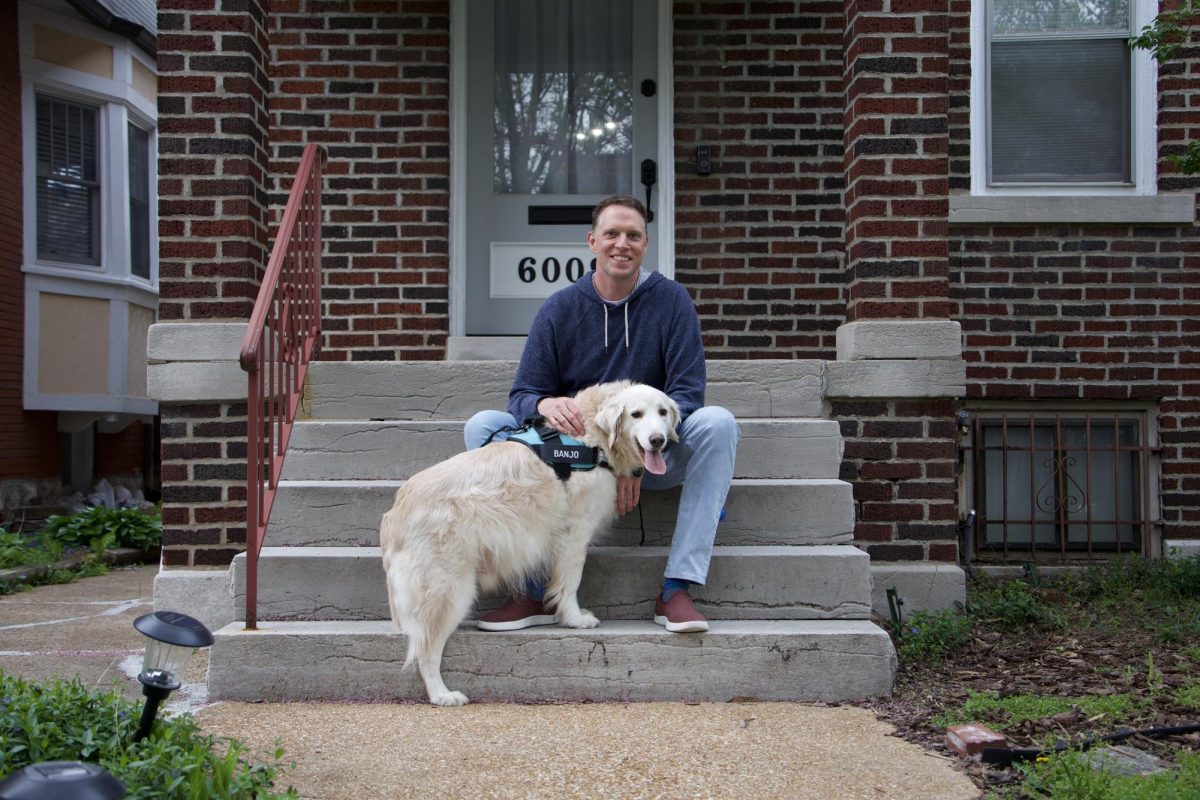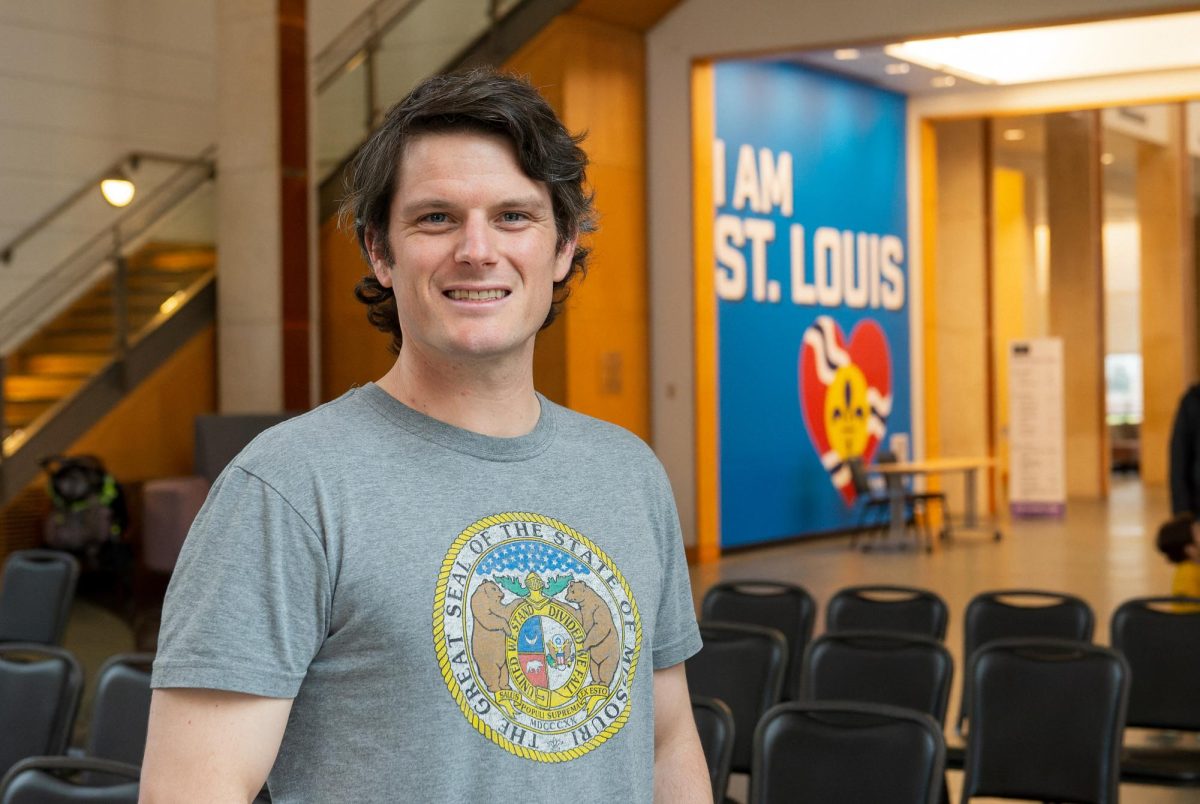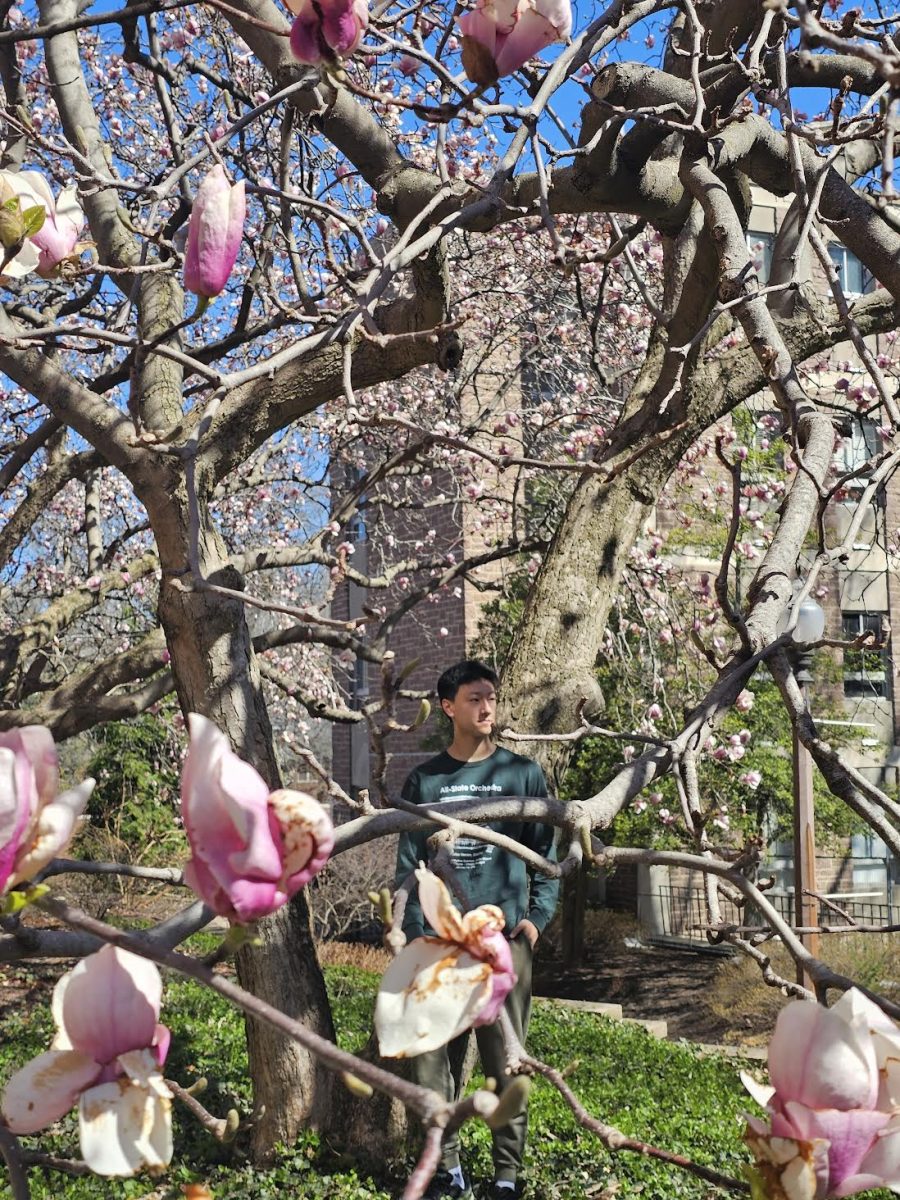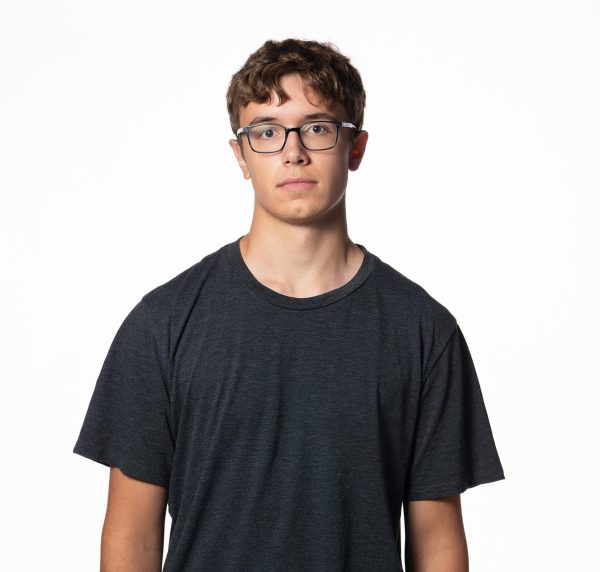Many people gather under the harsh fluorescent lights of room 2122. Terms about various events are tossed around like a foreign language. Dates for forms are printed messily on the board in magenta. To the right, dozens of books are carelessly strewn across shelves. To the left, a cardboard cut-out of George Washington stands tall. Groups of people enter in spurts and leave as they lose interest. People gradually start paying attention as the talking begins. The lights turn off and faces turn towards the speaker. On Sep. 9, the Ladue Speech and Debate team, the Talking Rams, held their introductory meeting covering speech events.
This meeting was one of the many events that the Talking Rams have planned to help students choose events, and foster a team spirit. As per their mission statement on the Ladue Activities website, the team is dedicated to helping students.
“The Talking Rams compete as a member chapter of the National Speech and Debate Association,” the Ladue Activities website says. “The NSDA is committed to providing youth with opportunities to develop the skills to speak, perform, and debate powerfully and persuasively in front of an audience.”
Franklyn Yang (12) has competed on the team since his freshman year. He joined the team early on, and speech and debate quickly turned into his main extracurricular.
“Debate has changed the way I think about things. Especially once you get into some of the more involved arguments, they require a certain perspective that really emphasizes critical thinking [and] asks you to challenge your held assumptions,” Yang said.
Speech and debate is a major extracurricular activity that has provided hundreds of students with the opportunity to grow their skills. The speech events consist of a verbal performance, and the debate events involve individuals or partners arguing the negative and affirmative sides of an issue. All members of the Talking Rams are required to compete in a speech and debate event.
“The public speaking aspect is very [beneficial] in terms of the speaking, presentation, and being able to come up with things off the top of your head,” Yang said. “I think it goes much, much deeper than that. A big part of it happens outside of the rounds. First of all, in being able to communicate with your team members, and also researching and formulating arguments. If you do debate, your performance in English classes will naturally improve, and your ability to form natural arguments.”



![A client poses for a photo. Although Hannah Hiken (12) enjoys painting nails for others, she prefers to have control of her own artistic freedom. “I do [nails] on myself a lot. I think that's what I really enjoy most,” Hiken said. “Doing it on myself, because I can choose everything I want to do.”
Photo courtesy of Hannah Hiken](https://laduepublications.com/wp-content/uploads/2025/05/IMG_1740-1200x986.jpeg)
![Duckham spends large amounts of her free time reading. Dealing with fewer classes this year, Duckham’s bookshelf at home has seen more use. “I call every book my favorite, but not truly every book [is]. I wrote my dissertation on Herman Melville, so I guess I'd have to say Moby Dick, is definitely one of my all time favorites,” Duckham said. “I really do love both British and American novelists of the 19th century. I tend to prefer nonfiction over fiction. For some reason, I think there's so many great non fiction writers, and I love the whole idea of something being true.
(Photo Courtesy of Janet Duckham)](https://laduepublications.com/wp-content/uploads/2025/05/IMG_6605-1200x900.jpeg)


![ABOVE: Duncan Kitchen (10) plucks the strings of his guitar at his home. Duncan’s older brother inspired him to start playing the guitar two years ago. “On any given day [in Alaska], you could walk up the mountain start a campfire [and] play guitar,” Duncan said. (Photos by Vincent Hsiao)](https://laduepublications.com/wp-content/uploads/2025/04/Hsiao_20250325_DuncanKitchen_010-1200x839.jpg)

